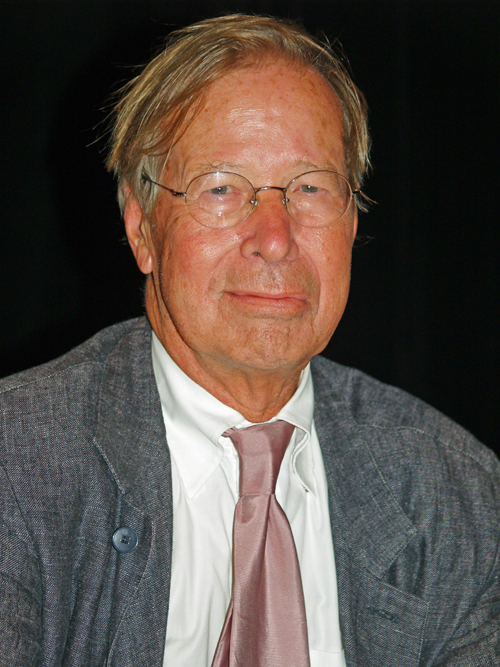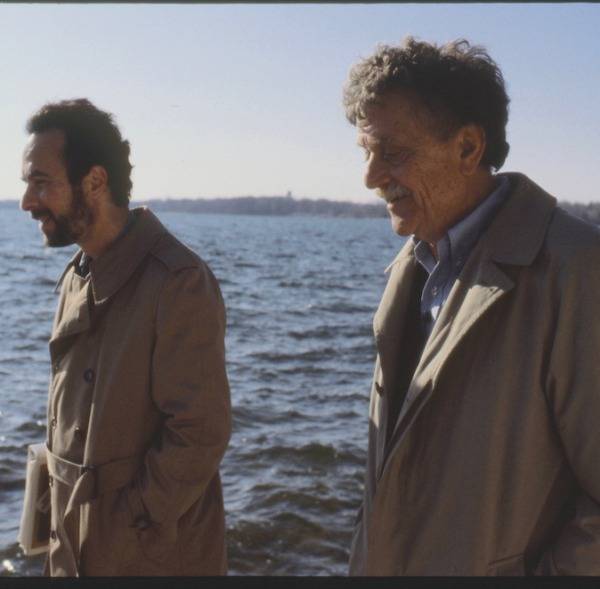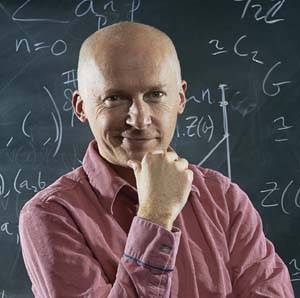
The religious right in America has never had a more formidable opponent than Ronald Dworkin. At the beginning of the ’60s he was a young Wall Street lawyer with a plush and lucrative career ahead of him. But he chose a different path, becoming a writer and teacher in the field of constitutional law and political theory, and a campaigner for equality and human rights. He displayed a remarkable gift for presenting abstract arguments with vividness, humour and easy lucidity, and his extraordinary sequence of essays, lectures and very substantial books – from Taking Rights Seriously (1977) to Justice for Hedgehogs (2011) – has made an impressive case for law as an ally of secular social progress.
Dworkin’s project might well seem paradoxical. Law is, after all, essentially a backward-looking enterprise, even a conservative or reactionary one. It involves acknowledging the rational force of ancient statutes and precedents, both separately and as a whole, thus subjecting the present to the authority of the past, and imposing the writ of the dead on the will of the living. On the other hand, the act of applying old law to new cases is never entirely mechanical, and if Dworkin is right it often calls for a large measure of invention and imagination. Passing judgement on a question of law, as he put it in an essay on “Law as Interpretation” in 1982, is an act of constrained creativity, like writing a chapter in a chain novel: your contribution will be your own original work, but it will need to make sense in terms of the chapters that precede it, and leave scope for unanticipated developments in those still to come.
For Dworkin, the fact that legal decisions involve interpretations does not make them arbitrary. They are shaped, he says, by moral and political judgements, which must themselves be arrived at by careful reasoning about rights and duties, benefits and harms. Or alternatively (he seems to think this comes to the same thing) they must be accountable to those values that can reasonably be attributed to the citizenry as a whole – not so much the opinions they happen to express, as the standards they are implicitly committed to, or those that would be endorsed by their better selves after due deliberation. He often goes on to claim (for reasons that have never been clear to me) that these implicit standards must be regarded as “real” or “objective”, and that every legal problem must have a single correct solution, even if we can never be sure we have found it.
Secular liberals, even if they are not persuaded by Dworkin’s idea of the objectivity of moral and political judgements, have always been impressed by his ingenious justifications for progressive good causes, from abortion rights and sexual freedom to affirmative action and restrictions on spending in election campaigns. On the other hand his reasoning can sometimes be tortuous or even paradoxical, and many of his admirers have been uneasy about his long-standing support for what he calls a “right to pornography”, his opposition to any law against holocaust denial and above all his unflagging support for constitutional protections of religion.
Dworkin has always been a frank and unembarrassed non-believer, but in his latest book, Religion Without God, he distances himself from the “militant atheism” that has been making headlines for the past decade and more. He deplores the divisive polemics of the New Atheists, and looks back nostalgically to a time, not so long ago, when people were less keen to sound off about belief and non-belief – a time, as he remembers it, when most educated people, including believers, were happy to pass over the biblical account of creation as simply “too silly to refute”. Atheism, for Dworkin, is uncontroversially true and truly boring, and atheists should find more interesting things to talk about.
Yet he still believes that religion deserves special treatment by the law. He admires Article 18 of the UN Declaration of Human Rights, which states that “everyone has the right to freedom of thought, conscience and religion”, and that “this right includes freedom to change one’s religion or belief, and freedom, either alone or in community with others … to manifest one’s religion or belief in teaching, practice, worship and observance.” He also supports the European Convention on Human Rights when it says that restrictions on religious expression can never be justified, except “in the interests of public safety, for the protection of public order, health or morals, or for the protection of the rights and freedoms of others”. Above all he approves of the First Amendment to the US Constitution, which states that government can “make no law respecting an establishment of religion, or prohibiting the free exercise thereof.”
Historically, many of these provisions were introduced in order to head off the danger of violence in the name of religion, though they function nowadays mainly to protect small churches and cranky sects that pose no real threat to anyone. But their real justification, according to Dworkin, has nothing specifically to do with religion: there is no special right to religious freedom, but only what he calls a “general right to ethical independence” – or, to put it differently, a restraint on any government activity based on the assumption that one conception of the good life is superior to another. He admits that it may be hard to decide what this principle implies, but has no doubt that it rules out any attempts to criminalise homosexual acts or early abortions, outlaw same-sex marriage or force schools to teach intelligent design.
Dworkin’s secularist defence of religious freedom is thus not as paradoxical as it might seem: for him, it is no more than specific application of a purely secular right – the right to “ethical independence”. But he puts a double lock on his doctrine with an argument to the effect that, strange as it may sound, religion should not be defined in terms of belief in God, and that secular atheism of the kind he espouses should be treated by the law as a form of religion.
Part of his reasoning is straightforwardly legal and backward-looking. The US Supreme Court has repeatedly decided that the constitutional right to religious freedom should not be restricted to individuals and organisations that recognise some kind of god. In 1961, for instance, it ruled that systems of belief such as “Buddhism, Taoism, Ethical Culture, Secular Humanism and others” should be counted as “religions” from the point of view of the law, even though they “do not teach what would generally be considered a belief in the existence of God”, and in 1965 it found that the right to be excused military service on grounds of conscience applies to atheists as well as believers.
Dworkin accepts these rulings without qualification, but finds that they involve a further principle, about the nature of religious belief as such. “The familiar stark division between people of religion and without religion is too crude,” he says, and supports his case with a neat discussion of Spinoza, a religious hybrid who can be claimed both as the first of the radical atheists and as a profound mystic, “intoxicated with God”. He could also have cited other precedents for non-theistic religiosity – notably the 19th-century notions of a “religion of reason”, a “religion of humanity”, a “religion of democracy”, a “religion of nature” or a “religion of socialism”. But instead he gives his argument a metaphysical turn which will, I suspect, leave his readers rather bemused.
Dworkin is enormously impressed by the philosophical ruminations of Albert Einstein, whom he quotes rhapsodising about “what is impenetrable to us”, and how it “really exists, manifesting itself as the highest wisdom and the most radiant beauty which our dull faculties can comprehend only in the most primitive forms.” Einstein described himself as “devoutly religious”, even though he was a declared atheist, and Dworkin wants to follow suit. He offers some striking speculations about the transcendent beauty of the natural world, and its essential role in the growth of science and mathematics, before reverting to his longstanding commitment to the “reality” of the ultimate principles of morals and politics. “Logic requires,” he declares, that values be “fully independent” of facts – a remark that might have been uncontroversial in the first half of the 20th century, but will raise a few philosophical eyebrows nowadays. He then expatiates on the evils of “naturalism”, or the kind of scientific materialism that treats value judgements as mere illusions, or subjective by-products of “people’s thoughts and reactions”. The only alternative to this corrosive reductionism, he believes, lies in a robust commitment to “transcendental and objective value”, or in what he calls a “religious attitude”, meaning the reverence for objective values that, he thinks, is displayed not only by old-fashioned aficionados of god but also by all right-thinking atheists.
The idea of extending the legal protection of religious belief to Einsteinian atheists may sound liberal, generous and inclusive, and that is certainly how Dworkin presents it. But its implications look thoroughly divisive to me. There are plenty of theists who would hesitate to claim transcendent objective reality for their beliefs, and they will resent Dworkin’s implicit charge that they lack the “religious attitude”, and the consequent threat to withdraw their legal protection. They can probably take care of themselves, but what about those atheists who do not feel able to follow Einstein, or to share Dworkin’s confidence in “transcendental and objective value”? Exuberant Nietzschean immoralists may not be bothered, but what about the rest of us – the bewildered don’t knows, and the pragmatists, existentialists, historicists and ironists who have come to the conclusion that, whether we like it or not, absolute truth is simply not on the menu? If others have a right to be certain, do we not have a right to be unsure?
That at least is how Religion Without God strikes one godless reader. In the past, Dworkin has always been willing to listen carefully to his critics, before demonstrating with courtesy and calm persuasiveness that they are completely and utterly wrong. But that is not going to happen any more. After delivering the lectures on which this book is based, Dworkin fell ill. He died early in 2013, at the age of 81, leaving us all much the poorer.
Religion Without God by Ronald Dworkin is published by Harvard University Press

